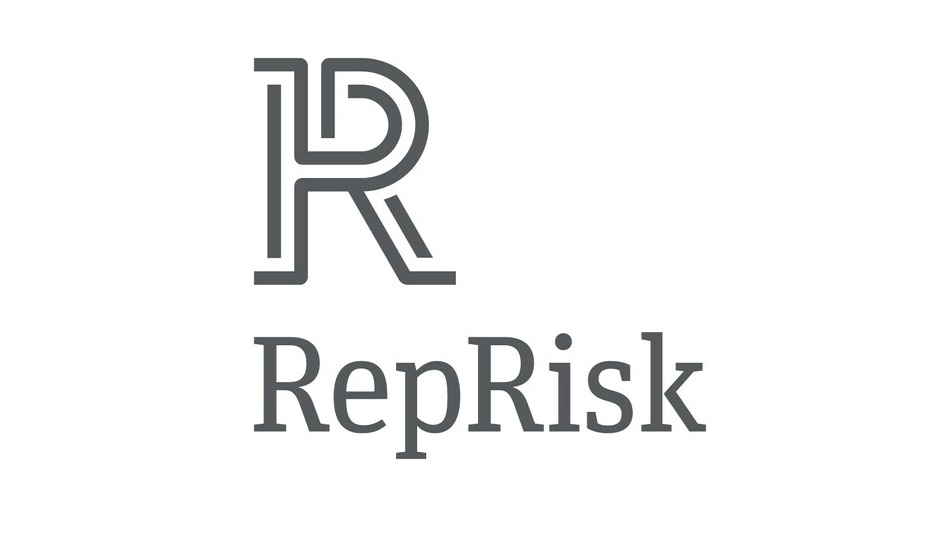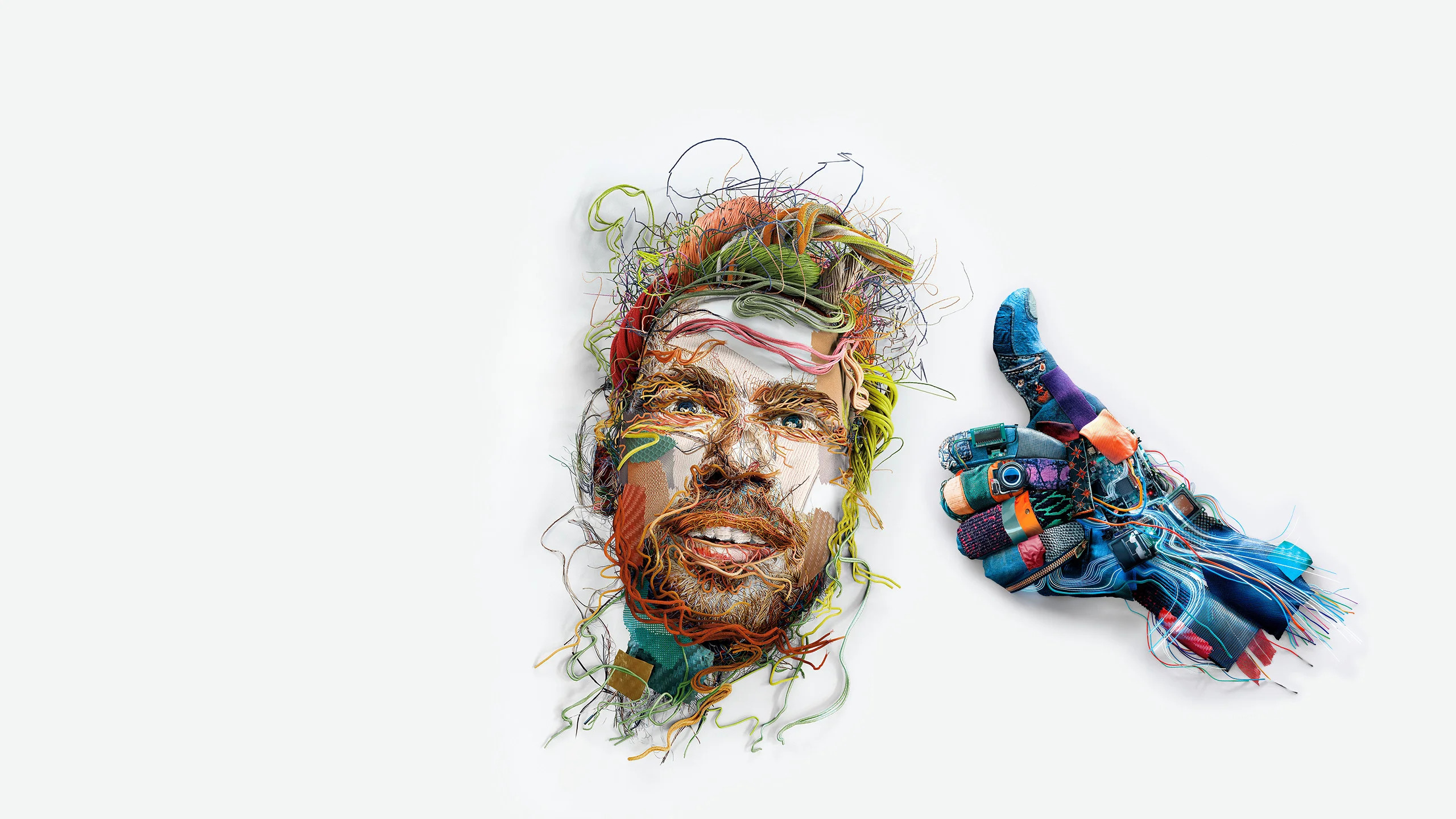FW
The Apparel Export Promotion Council (AEPC) and Tiruppur knitwear exporters have applauded the latest reforms from India's GST Council, which are expected to drive new growth for the nation's apparel sector.
The organizations have hailed some of the major changes in these reforms, including faster export refunds and more streamlined GST rates, as critical steps toward boosting India's GDP. Industry leaders believe, these reforms will support Indian exporters and align with the country's ‘Make in India’ initiative.
The council has expressed gratitude to government officials, stating, these measures will empower the broader textile industry and improve the standard of living for many citizens. This move is seen as a sign of the industry's strong partnership with the government's national reform efforts.
Bangladesh's apparel exports to the United States grew by an impressive 21.66 per cent Y-o-Y in the first seven months of 2025, solidifying its position as one of the fastest-growing clothing suppliers to the world's largest market.
From January to July, Bangladesh exported apparels worth $4.98 billion to the US, significantly outpacing the overall US apparel import growth of just 4.96 per cent during the same period. In terms of volume, the number of garments from Bangladesh imported by the US increased by 20.33 per cent, while the average unit price rose by a modest 1.11 per cent.
This strong growth proves Bangladesh is consolidating its position as one of the most reliable sourcing destinations for global buyers, says Mohiuddin Rubel, Former Director, BGMEA and Managing Director, Bangladesh Apparel Exchange. Even as China's apparel exports to the US declined by more than 21 per cent, Bangladesh gained significant ground with both volume and value increases, he adds,
Once the undisputed leader in global apparel exports, China’s shipments to the US declined by 21.01 per cent in value and nearly 16 per cent in quantity. It’s average unit price also lowered by 6.05 per cent.
Meanwhile, several other Asian competitors experienced double-digit growth: Vietnam’s exports increased by 16.94 per cent, while shipments from India rose by 16.10 per cent, Pakistan by 11.81 per cent, Indonesia 16.80 per cent, and Cambodia 24.45 per cent. Cambodia emerged as largest exporter with a 31.11 per cent rise in the number of pieces shipped, with Bangladesh close behind at 20.33 per cent.
The combination of competitive costs, strong compliance, and sustainability credentials is helping Bangladesh win orders that previously went to China, states Rubel.
Industry experts say Bangladesh's growth is about more than just a diversion of orders. The country’s investments in green factories, worker safety, and social compliance over the past decade have made it an attractive sourcing hub for US and European retailers.
Global buyers are increasingly prioritizing sustainable supply chains, Bangladesh with its highest number of green factories is delivering on that front, Rubel affirms.
At the same time, Bangladesh’s ability to produce large volumes of basic apparel at competitive prices gives it an advantage. The small 1.11 per cent increase in unit prices suggests that buyers are still getting value for their money, while suppliers are enjoying slightly improved margins.
As part of the ‘TN Rising Europe’ investment delegation, MK Stalin, Chief Minister, Tamil Nadu signed several memoranda of understaning (MoUs) in the United Kingdom.
These MoUs were signed with several companies in the textile technology and garment sectors. According to the government, these agreements represent long-term strategic moves for Tamil Nadu into high-value sectors, with the goal of positioning the state as a national and global leader in these niche fields.
One of the key agreements was with a subsidiary of the UK-based Britannia Garment Packaging, Britannia RFID Technologies India. The company will invest $58.97 million to build a high-capacity RFID tag manufacturing facility in Tirupur and Namakkal. The project is expected to create 550 jobs and will help digitize the supply chain and improve traceability in the garment industry, the government adds.
H&M Group’s fashion and lifestyle brand, & Other Stories introduced a new ‘brand spirit’ including a new capitalized logo under the leadership of Jonathan Saunders, Creative Director.
Having joined the company in April, the British designer replaced the brand's former handwritten design with a fresh tone of voice.
The new campaign celebrates real clothes for everyday experiences, designed to inspire individuality, says Saunders. It combines nostalgia with modernity and signifies an exciting new chapter for & Other Stories, he adds,
The first part of the Autumn/Winter collection is called ‘modern nostalgia.’ Inspired by the 60s, 70s, and 90s, it features progressive silhouettes, vintage-inspired lived in textures and a fluid attitude, juxtaposed with technical fabrics, like mohair, croc-effect leather, jacquard, and corduroy.
& Other Stories adds, these re-imagined everyday pieces with an elevated edge were created for ‘individuals who embrace self-expression.’ This individuality is highlighted through the styling, where ‘youthful energy is expressed through laid-back layering and unexpected pairings.’
Key pieces from the September collection include a croc-effect leather bomber jacket, tailored pencil skirts, slouchy wool coats, and fuzzy mohair knit sweaters. The accessories also have nostalgic touches, from 70s-inspired eyewear to chunky gold necklaces and leather bags.
Pioneering Swedish technology company, BPC Instruments is diversifying its business into the textile industry. The company recently received an order for its BPC Blue platform from a global German company that specializes in adhesives, sealants, and functional coatings. This move highlights the growing demand for accurate biodegradability testing of materials within the textile and apparel sector.
The German company plans to use the BPC Blue platform to enhance its assessment of material biodegradability, helping it meet sustainability goals and regulatory standards. For BPC Instruments, this order is considered a strategic win.
The BPC Blue platform measures oxygen uptake as materials break down, providing a fast and reliable way for manufacturers to evaluate material performance and qualify sustainable alternatives. This technology gives textile and apparel companies the precise data they need early in the development process, which helps reduce operational risks and move toward a more circular and sustainable supply chain.
Dr. Jing Liu, CEO, BPC Instruments, states, expanding the application of BPC Blue into textiles and apparel confirms the relevance of this technology. By giving manufacturers clarity and precision in material evaluation, BPC Blue supports a faster shift toward sustainable and efficient value chains.
BPC Instruments develops and provides analytical instruments that help companies in the renewable bioenergy and environmental biotechnology industries. The company's innovative products offer high-quality hardware and software that save time and labor while delivering accurate results. BPC Instruments exports to nearly 80 countries and is listed on the Spotlight Stock Market in Sweden.
Mahmud Hasan Khan, President, The Bangladesh Garment Manufacturers and Exporters Association (BGMEA) is urging global clothing retailers and brands to increase their orders from Bangladesh. Khan highlights the country's tariff advantages over competitors in the United States during a meeting with international buyers in Dhaka.
Emphasizing on the importance of sourcing more from Bangladesh, Mahmud Hasan Khan, President, BGMEA, calls for a unified compliance framework. Suppliers face significant challenges as different companies enforce varying standards for social, compliance, and other key audits. It would be beneficial for all sourcing firms to adopt a common code, he states.
Khan also encourages US retailers and brands to consider reducing tariffs on Bangladeshi apparel to further improve its competitiveness. The meeting also explored ways to diversify products to attract a wider range of business opportunities.
In total, 42 representatives from European, American, and Asian companies participated in the forum, showing a continued interest in Bangladesh's garment sector.
American Eagle Outfitters is betting on promotions and new products to drive sales, leading the company to forecast better-than-expected comparable sales in Q3, FY25. The news caused the apparel retailer's shares to jump 25 per cent after the market closed.
Apparel companies like American Eagle and Abercrombie & Fitch have been able to overcome a retail sector slowdown by using promotions and targeting more affluent consumers.
American Eagle has been trying to boost demand through its marketing campaigns, including the controversial ‘Great Jeans’ denim campaign featuring actress Sydney Sweeney. This follows previous partnerships with tennis player Coco Gauff and actress Jenna Ortega. The apparel maker has also entered into a partnership with NFL player Travis Kelce's clothing brand, Tru Kolors.
The company expects its quarterly comparable sales to increase by a low single-digit percentage. This is a positive forecast, especially since analysts were expecting a 0.3 per cent decline, according to data from LSEG.
American Eagle also expects its annual comparable sales to remain flat compared to the previous year, while analysts had estimated a 1.1 per cent decline.

The global apparel and textile industry, long celebrated for its role in democratizing fashion and creating jobs across continents, is under a new spotlight. A report titled ‘Anatomy of Supply Chain Risks’ by Zurich-based ESG data firm RepRisk has laid bare the systemic fragilities woven into the sector’s supply chains. From human rights abuses to environmental violations, the report paints a sobering picture of an industry grappling with vulnerabilities that could shape its future growth path.
Looming crisis
The RepRisk report draws on an expansive database of publicly available information, NGO findings, and stakeholder sentiment. The analysis underscores how ESG (environmental, social, governance) risks are not isolated events but deeply entrenched in the apparel supply chain. Notably, the industry consistently ranks among the most exposed to human rights and labor-related risks, with incidents rising year after year. Environmental lapses from water contamination to unsustainable raw material sourcing are compounding the challenge.
Table: Distribution of ESG risks in apparel & textile supply chains
|
Risk category |
Percentage of total incidents (T&A) |
Percentage change (last 3 years) |
Sub-iIssues |
|
Labor & Human Rights |
45% |
+15% |
Forced labor, child labor, workplace safety, wages |
|
Environmental |
30% |
+12% |
Water pollution, chemical use, waste management, emissions |
|
Governance & Corruption |
25% |
+8% |
Bribery, corruption, lack of transparency |
Source: RepRisk, “Anatomy of Supply Chain Risks” (illustrative data)
The concentration of high-severity risks in South and Southeast Asia, the backbone of global apparel production is particularly concerning. More than 60 per cent of ESG incidents are traced to this geography, underscoring the fragility of supply networks that power global fashion retailers. The RepRisk report doesn't just present numbers; it underscores the real-world consequences of these risks through anonymized case studies.
Case Study 1: The hidden cost of fast fashion
A global fast-fashion giant came under fire when reports revealed forced labor in its cotton supply chains. RepRisk had flagged early indicators from activist reports years earlier, but insufficient due diligence meant the brand overlooked red flags. The fallout was swift: reputational damage, consumer boycotts, lawsuits, and a significant dip in stock price. This case illustrates how ignoring labor risks translates into both financial and reputational shocks.
Case Study 2: Dyeing for change?
In South Asia, a textile dyeing mill supplying several international brands was caught discharging untreated wastewater into rivers. The resulting ecological damage and public health crisis led to regulatory crackdowns and eventual closure of the mill. Brands dependent on the supplier faced supply chain disruptions, proving how environmental negligence can spiral into operational breakdowns.
A double-edged sword for India
India, one of the world’s top textile exporters, is at the epicenter of this debate. The country’s industry employs over 45 million people and contributes nearly 12 per cent of total exports, yet challenges around informal labor, weak regulatory enforcement, and environmental compliance persist. Stakeholders say, the upcoming festive season demand in hubs like Surat and Ludhiana could strain supply chains further, as pressure mounts on smaller suppliers to meet tight deadlines often at the expense of labor conditions and environmental safeguards.
Table: India’s apparel & textile supply chain risks
|
Factor |
Current status |
Associated risk |
|
Workforce (45+ million) |
High reliance on informal labor |
Wage exploitation, poor safety standards |
|
Export Contribution (12%) |
Critical foreign exchange earner |
Vulnerable to global ESG scrutiny |
|
Dyeing/Processing Hubs |
Surat, Ludhiana, Tiruppur |
Water pollution, chemical discharge |
|
Cotton Sourcing |
Gujarat, Maharashtra |
Risks of forced/child labor in harvesting |
Indeed, the RepRisk report is more than a data compilation it is a wake-up call. As ESG-focused investing gains traction, brands that fail to strengthen supply chain accountability risk losing not only consumer trust but also investor confidence.
Takeaways for brands & investors
Higher transparency: Comprehensive supply chain mapping, including lower-tier suppliers, is essential.
Proactive risk monitoring: Tools like RepRisk can act as early-warning systems.
Stakeholder collaboration: Partnerships with NGOs, local communities, and regulators can drive change on the ground.
Investment in sustainability: Shifting to cleaner dyeing processes, renewable energy, and fair labor practices is no longer optional—it is survival.
From compliance to commitment
As consumer awareness grows with documentaries, social media campaigns, and activist pressure the demand for accountability is no longer limited to industry insiders. Governments are stepping in too. The EU’s Corporate Sustainability Due Diligence Directive (CSDDD) and the US Uyghur Forced Labor Prevention Act are forcing brands to rethink sourcing strategies.
For India and other South Asian hubs, this is both a challenge and an opportunity. By embracing ESG compliance, textile exporters could strengthen their competitiveness globally, while failure to do so could see orders diverted to countries with stronger compliance frameworks.
Thus the RepRisk report underscores a central truth: the apparel industry’s glossy storefronts and fast-changing trends mask a fragile and risk-laden foundation. The sector now stands at a critical inflection point either weave sustainability and ethics into its very fabric or face mounting crises that unravel its future.
A leader in flat knitting technology, Shima Seiki Mfg will showcase its latest advancements in sustainable and digital fashion at the the upcoming Avantex show in Paris, France. The exhibition will be organized from September 15-17, 2025 at Paris Le Bourget Exhibition Centre in France by Messe Franfurt France SAS. Shima Seiki will participate alongside its European subsidiary, Shima Seiki Europe
At the core of their exhibit will be subscription-based design software, Apexfiz that supports the entire creative process. This software allows fashion professionals to move from initial planning and design to color evaluation and realistic fabric simulation, all in a digital environment.
An important feature of Apexfiz is its ability to create 3D virtual samples. These digital prototypes are so accurate they can effectively replace physical samples, significantly reducing the time, cost, and material waste associated with traditional sample-making. The software achieves this realism by using scanned data from actual yarn to create virtual fabrics that are nearly identical to their physical counterparts. Apexfiz can simulate a variety of textiles, including wovens, circular knits, flat knits, and even embroidery.
These virtual fabrics can then be used in various 3D simulation programs, including Apexfiz to generate realistic product images. If a design is approved for production, the software can generate machine data, creating a seamless digital bridge between the design studio and the factory. By digitizing the supply chain, Apexfiz helps companies achieve their sustainability goals.
The functionality of Apexfiz is further enhanced by two web services from the Shima Seiki Online Services platform; yarnbank and Shima Datamall.
A leader in AI-powered textile technology, Smartex has achieved significant milestones in its mission to reduce waste and enhance efficiency in the textile industry. The company reported saving over 1.1 million kg of fabric, translating to a reduction of 8.1 billion liters of water, 6,739 tons of CO₂ emissions, and more than 24 million kw-hours of energy in Q2, FY25.
While knitting factories already see benefits from reduced fabric waste and defects, Smartex's recent projects have focused on the garment stage, where the financial impact is most significant. The results confirm, Smartex's technology consistently leads to more garments produced with less fabric, faster production with fewer accidents, and a more sustainable process with less waste.
Smartex is also increasing its global footprint and enhancing its technology to meet growing demand. The company is seeing a rising demand from textile factories in Asia for AI and automation solutions. To support this growth, Smartex has appointed Nik Wagner to lead its business expansion in the Asia-Pacific region, based in Hong Kong.
Smartex has continuously improved its AI models, which are now detecting a wider range of defect categories. The company has also launched a new feature that provides clients with real-time, dynamic reports powered by PowerBI, a highly requested tool for data-driven insights.
Smartex has released a major update to its system, making the interface significantly easier for factory operators to use. The new UI was designed with a minimalist approach, removing complex buttons and graphs to streamline the user experience.












